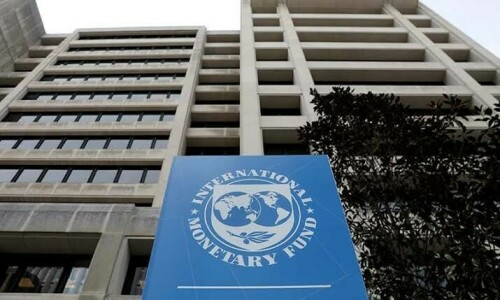ISLAMABAD, March 4: The International Monetary Fund (IMF) wants the new government to bring agriculture and services sectors into the tax net and reduce exemptions in order to tide over financial difficulties.
“The fiscal effort should rely primarily on strengthening revenue mobilisation substantially to reduce deficit, while allowing for increased spending on infrastructure, human capital and poverty alleviation,” says the latest IMF report obtained by Dawn.
It said that even with the envisaged reduction in the current account deficit over the medium-term, Pakistan would continue to depend heavily on large capital inflows. Therefore, a high degree of flexibility in economic policy-making would be required to respond quickly to external shocks. In particular, given the need to continue strengthening the foreign exchange reserves position, the authorities should adhere to their plan to rely primarily on active demand policies in response to external financing shortfalls.
The report shares the authorities’ view that the effective exchange rate is broadly in line with fundamentals. Going forward, fiscal adjustment, accompanied by higher levels of investment and a vigorous implementation of structural reforms to increase the economy’s productivity, constitute the main avenues to improve external competitiveness.
The recent removal of the remaining exchange restriction in the form of a 50 per cent limit on advanced payments for some imports was welcomed by the IMF.
In addition to strengthening tax revenues, the report said, priority should be given to other structural reforms of critical importance to increase savings and investment. Pressing ahead vigorously with the reform of the energy sector’s regulatory and tariff framework will contribute to increasing productivity, strengthening public sector savings and enhancing the prospects for privatisation of power companies.
There is also a need to complete the ongoing reform of the National Savings Schemes to facilitate their integration with local financial markets; adopt a system of regular margin financing in line with major stock exchanges; and move forward with current plans to shift away from the use of short-term government financing instruments into long-term securities, in order to improve debt management and encourage development of the local bond market.













































Dear visitor, the comments section is undergoing an overhaul and will return soon.